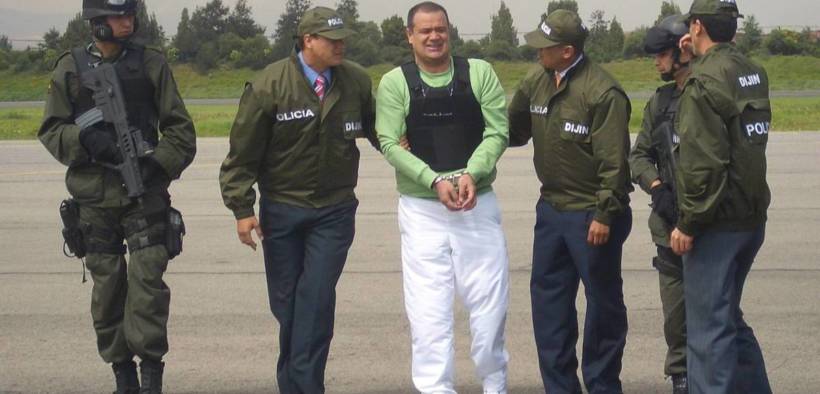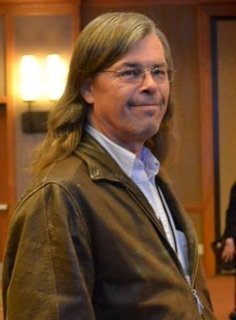Global Leaders Finally Are Realizing That You Can Fight Organized Crime by Legalizing Drugs

For nearly a decade now, a collection of former heads of state, high political figures, businessmen, and cultural figures have been working to reform drug policy at the national and international levels. Known as the Global Commission on Drug Policy, this group of planetary leaders has been busy issuing reports every year on how to reduce the harms of prohibitionist drug policies and envisioning more effective and humane alternatives.
Their latest report, released this year, is titled, “Enforcement of Drug Laws: Refocusing on Organized Crime Elites,” which highlights the perverse and insidious ways drug prohibition actually empowers and encourages criminal enterprises and counsels nations and the global anti-drug bureaucracy to find a better approach. That includes pondering the possibility of drug legalization and the taming of illicit markets through regulation—not prohibition, which has demonstrably failed for decades.
The commission rolled out its report on May 7 with a virtual presentation on YouTube.
“This report has a new perspective on the problem of organized crime,” said commission member Helen Clark, a former prime minister of New Zealand and former head of the United Nations Development Program. “Organized crime is a challenge in every society, and if it gets into the political realm and starts corrupting political systems, that is a huge issue, and of course it has done that,” she said.
“Where the commission comes from is that we’re saying ‘drugs are being caught up in this’ because of the refusal of the international community to accept that drugs need to be responsibly regulated,” Clark continued. “The attempt to prohibit them has actually been a license for organized crime to build a half-trillion-dollar a year industry in peddling stuff. Could we take drugs out of that through responsible regulation?”
As president of Colombia between 2010 and 2018, commission member Juan Manuel Santos mediated a peace treaty with the leftist guerrillas of the Revolutionary Armed Forces of Colombia (FARC) and won a Nobel Prize for his efforts. He also presided over a country that is known for being one of the world’s largest cocaine producers. He knows about the issues drug prohibition can bring.
“Coming from a country that has fought drug traffickers and drug trafficking for so long and has paid probably the highest cost of any country in the world—Colombia has lost its best leaders, best journalists, its best judges, its best policemen—and we are still the number one exporter of cocaine to the world markets,” Santos said. “Corruption and drug trafficking go hand in hand. The most dangerous and most protected individuals often escape, while ordinary people who happen to use illicit substances, see their lives destroyed by the ‘war on drugs,” he argued.
“To fight organized crime, we must follow the money,” Santos continued. “People are realizing that a war that has been fought for half-a-century and has not been won is a war that has been lost. And so you have to change your strategy and change your tactics if you want to be successful.
When asked about how countries should respond to the violence of organized crime, Santos replied, “Corruption, violence, profits, and prohibition [are very closely related]. You do away with prohibition, you regulate, you bring down the profits, and immediately you will start to see an improvement in violence and in corruption.”
The commission’s work centers around five pathways, which were explained by commission chair and former President of Switzerland Ruth Dreifuss.
The commission’s first recommendation is about countries “putting health first” in their policies, she said. “It is also giving priority to the need to consider also some of these substances under their medical possibility. It is one of the dramatic situations also, mainly in poor countries, that the people have no access to [scheduled] painkillers. The third pathway, [which] we think is very, very important, is really to end the criminalization of the people who use drugs. The fourth chapter of our reform program is that we have to deal with the criminality [related to drugs]. And this is the reason why today we present this report of the commission. And the last point [is that UN member states] have to take control. The state—reasonable and responsible people—have to take control of drug markets and not let them [stay] in criminal hands.”
While the 52-page report provides a detailed, evidence-based examination of the challenges of grappling with criminal groups that thrive under prohibition, it summarizes its findings with five basic recommendations for the member states of the United Nations, whose anti-drug treaties form the legal backbone of global drug prohibition. These are:
- “States must acknowledge the negative consequences of repressive law enforcement approaches to drug policies and recognize that prohibition forges and strengthens criminal organizations. Sharing such conclusions with the public must then feed national debates to support bold drug policy reform.”
(We all know the litany by now: From racially biased and militarized policing and over-incarceration in the United States, to bloody drug wars in Mexico and Colombia financed by prohibition profits, to the murderous and repressive anti-drug campaign in the Philippines, enforcing drug prohibition has dreadful and harmful consequences.)
- “States must analyze the transnational and trans-sectorial nature of criminal organizations, to review and reform the current exclusive focus on law enforcement.”
(Drug trafficking organizations don’t just traffic drugs; they tend to get their fingers in whatever illicit enterprises can turn a buck for them, from wildlife smuggling to counterfeiting to extortion. And maybe we’d be better off devoting more resources to treatment and prevention instead of trying to suppress and arrest our way out of the problem.)
- “States must develop targeted and realistic deterrence strategies to counter organized crime and focus their response on the most dangerous and/or highest profiting elements in the criminal market. States must also reinforce interdepartmental cooperation to address criminal markets in a broad sense, not solely drugs, and develop effective transnational coordination against trans-border criminal groups and international money laundering.”
(It’s both cruel and ineffective to target drug users and street-level dealers for arrest and prosecution. But the recent Mexican experience has shown that the alternative strategy of going after “kingpins” can lead to an increase in violence as gang lieutenants engage in a murderous struggle to replace each capo killed or captured. It’s a real dilemma—unless you undercut them by ending drug prohibition.)
- “States must consider the legal regulation of drugs as the responsible pathway to undermine organized crime.”
(This increasingly seems like a very reasonable approach.)
- “UN member states must revisit the global governance of the international drug control regime in order to achieve better outcomes in public health, public safety, justice, and greater impact on transnational organized crime.”
(It’s way past time to nullify or amend the anti-drug treaties that guide international drug policies.)
The Global Commission on Drug Policy has laid out a framework for radical reform. Now, it’s up to the nations of the world and the international institutions that bind us together to act on it.
This article was produced by Drug Reporter, a project of the Independent Media Institute.



















